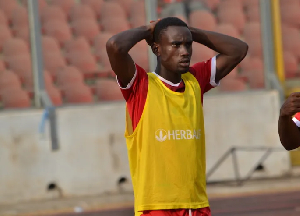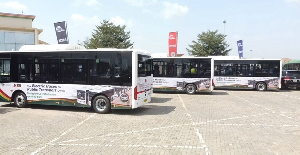Following the shipping of its 20 millionth donated book, Kofi Akosah-Sarpong in Ottawa interviews Ghanaian-born Ms. Yvonne Appiah, executive director of CODE, which for the past 42 years has been helping in literacy development in Africa.
At first glance the offices of the prestigious literacy organization which for the past 42 years have been increasing literacy, supporting some Africa indigenous publishers, providing books and other literacy tools to countries worldwide including Ghana, Senegal, Mozambique, Malawi, Ethiopia, Mali, Tanzania and Kenya look too quiet and simple to be credited with being involved in massive literacy work in some parts Africa that saw it awarded the UNESCO International Prize for Literacy in 1985 and the Tanzanian Ministry of Education’s Adult Education Award in 1996 for promoting literacy in Africa. But as one walks through CODE’s offices at Ottawa’s 321 Chapel Street and research and hears from its 56-year-old Ghanaian-born Executive Director, Ms. Yvonne Appiah, it becomes clear that CODE’s simplicity has come from its ability to work through Africa’s difficult literacy terrain.
Prof. Kobina Yankson, Pro-Vice-Chancellor of the University of Cape Coast, buttresses this that more than 50 percent of the Ghanaian population are illiterate, accounting largely for Ghana’s low level of development.Ms. Appiah, trained as a journalist at Canada’s Carleton University and speaks Fanti, French and English, was at different times in the 1970s a member of the board of directors of Ghana’s mass circulation Daily Graphic and The Ghanaian Times and started out at CODE as coordinator of volunteer programs in 1987. She returned recently from Mali and Ghana where she attended a workshop entitled “Learning through our Practice,” which CODE organized with its partner agencies and co-hosted by l’Association pour la Lecture, l’Education et le Development au Mali (ALED). Attended by representatives from Senegal, Ghana, Ethiopia, Tanzania, Malawi, Mozambique and Guyana the workshop gave the literacy facilitators time to “share and reflect on their experiences in implementing literacy programs for children and to continue building CODE partnerships through workshops and exchanges among partners and make the communities aware of the importance of education.”
Ms. Appiah told West Africa that her outfit “work with like-minded local non-governmental organization in Africa to support a sustainable literate environment for children, provide resources for learning, target young people, improve teachers literacy skills and help teacher librarians.” And this sustainability of literate environment has come about by taking tough choices.
In Ghana, using a survey that revealed that schools in the Ashanti region had the lowest literacy rate, CODE in a "concentrated effort" targeted the Sekyere East and Bosomtwi-Atwima-Kwanwoma districts of the region and through the Ghana Book Trust, which partners with CODE, started a literacy program that has seen a great improvement in the literacy skills of pupils. An independent evaluation conducted in 2000 revealed that the test scores in English language and mathematics shows that the comprehension skills of kids in these two districts have improved by between 45 percent to 75 percent.
The annual budget for the Ghana program is C$258,000 and the Ghana Book Trust has been commended by many organizations including the Ghana Book Development Council. According to Ms. Appiah, who was educated in Ghana, England and Canada and is a Fellow of Public Relations Association of Ghana, much of the books and other literary tools CODE have been providing Africa for the past 42 years have come about through the generous financial support of the Canadian public. Ms. Appiah also talked about the importance of making young Canadians aware of the importance of development and the fact that educational supplies taken for granted in Canada "can be difficult to obtain by people who live in remote villages or impoverished areas of Africa, for example."
To affect this, CODE launched Project Love in 1989 where Canadian elementary school children and their teachers participate in the global village through their sending of educational materials to pupils and teachers in Africa. "In the process they learn about the country where the supplies--books, paper, pencils, rulers and erasers--are going and are therefore introduced to global issue. CODE’s work in literacy in Africa also includes support for the production of books, magazines and newspapers in 26 different languages,” said Ms. Appiah. CODE, which stands for the Canadian Organization for Development through Education, networks with several entities of the North America and international literary world. It has an annual budget in the region of C$10 million, which includes the value of the donated educational materials shipped to the eight African countries and Guyana. Its programs annually reach an average of 1.5 million adults and children. Its literacy activities in Africa started in a humble way through a church basement in Toronto where "volunteers packed books in tea chests and shipped them overseas to the Caribbean, Africa and Asia."
Over the years CODE's ability to provide the appropriate educational materials has come about by ensuring the involvement of its partners in the selection process. "Each partner agency has a book selection committee which decide which book(s) they want…The books are generally used as reference materials to support the education system," explained Ms. Appiah, who has been profiled in 100 Black Canadians and Who’s Who in Black Canada for her contributions to international development. "Most of the books and materials shipped today are brand new donated by North American publishers unlike past years where most were second hand."Statistics made available by CODE to West Africa indicate that in 2001 more than 685,000 children and adults, directly benefited from CODE programs; 379,000 North American books were shipped overseas; 300,000 local and national language books were bought in Africa; 5,000 teachers, librarians, literacy workers and education officials were trained.
With such impressive performance it’s not surprising that in extending for another five years CODE's program, the Canadian government, through the Canadian International Development Agency, has recognized CODE's ability to address the need of children and teachers in Africa.
















